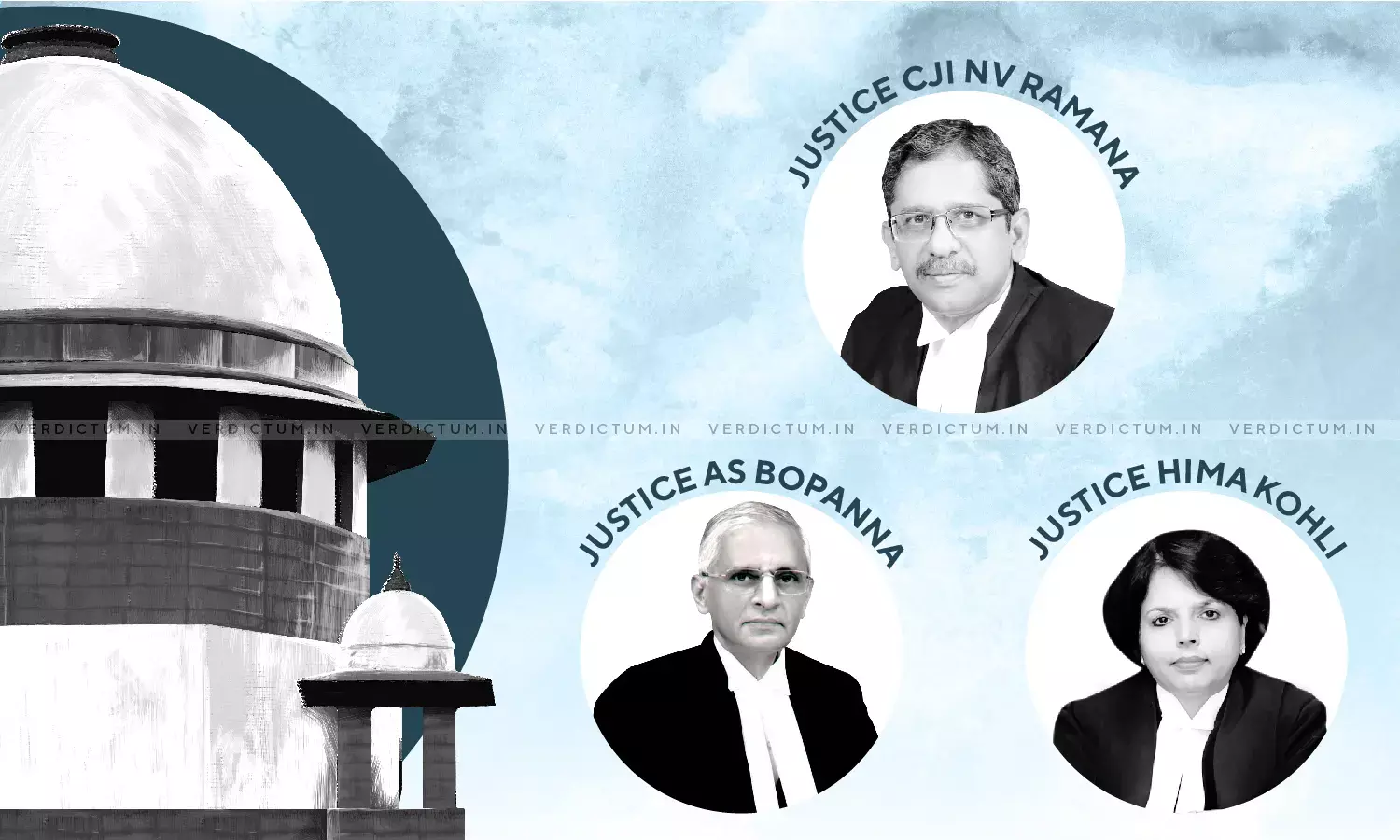Arbitrator Can Grant Post Award Compound Interest: Supreme Court Reiterates

A three-judge bench of the Supreme Court ('SC') comprising of Chief Justice N.V. Ramana, Justice A.S. Bopanna and Justice Hima Kohli has held that post-award interest can be granted by an Arbitrator on the interest amount awarded. Additionally, the SC has held that the jurisdiction under Section 34 of the Arbitration and Conciliation Act, 1996 ('Act') is narrower than that under Section 37 of the Act.
In the present case, the sole Arbitrator passed an order in favor of the UHL Power Company Limited ('UHL Ltd.') where a sum of Rs. 26,08,89,107.35 along with compound interest of 9% till the date of claim and a further of 18% if the awarded amount is not realized. This was challenged by the State of Himachal Pradesh under Section 34 of the Act leading to the Single Judge disallowing the entire claim of UHL Ltd. This impugned judgment was challenged through Section 37 of the Act whereunder the Division Bench of the Himachal Pradesh High Court ('HC') revised the sum to Rs. 9,10,26,558.74 with 6% interest. However, the HC denied the payment of post award interest on the interest amount awarded stating the absence of any such provision in the contract. This impugned judgement has been challenged by UHL Ltd. before the SC.
Senior Advocate Mr. Jaideep Gupta appeared for the Appellants i.e. the UHL Ltd., while the Additional Advocate General, Mr. Abhinav Mukherji appeared for the Respondent i.e. the State of Himachal Pradesh before the Apex Court.
The primary question for consideration were as follows –
- Whether does the Arbitrator have the power to grant a post-award interest on the interest amount awarded?
- Can there be a re-appreciation of the findings under Section 34 of the Act?
On the first issue, the SC observed that the HC had declined the post-award interest based on the decision of State of Haryana v. S.L. Arora wherein it was held that – "compound interest can be awarded only if there is a specific contract, or authority under a Statute, for compounding of interest and that there is no general discretion vested in courts or tribunals to award compound interest. It was further held that in the absence of any provision for interest upon interest in the contract, the Arbitral Tribunals do not have the power to award interest upon interest, or compound interest, either for the pre-award period or for the post-award period."
However, the SC observed that in the case of Hyder Consulting (UK) Ltd. v. State of Orissa through the Chief Engineer, the judgment in S.L. Arora was overruled. The SC thus stated that - "As the judgment in the case of S.L. Arora (supra), on which reliance has been placed by the Division Bench of the High Court of Himachal Pradesh, has since been overruled by a three-Judge Bench of this Court in the case of Hyder Consulting (UK) Ltd. (supra), the findings returned by the Appellate Court in the impugned judgment to the effect that the Arbitral Tribunal is not empowered to grant compound interest or interest upon interest and only simple interest can be awarded in favour of UHL on the principal amount claimed, is quashed and set aside. As a result, the findings returned in para 54(a) of the impugned judgment insofar as it relates to grant of the interest component, are reversed while restoring the arbitral award on the above aspect in favour of UHL."
Hence, the Bench opined that the decision of the HC to deny the grant of post-award interest was erroneous and allowed the appeal to this extent.
On the second issue, the SC agreed with the view of the HC that the Single Judge under Section 34 of the Act erred in re-examination of the findings while taking an entirely different view of interpreting the relevant clauses and provisions of the Implementation Agreement governing the Parties. The SC held that the HC virtually acted as a 'Court of Appeal' which was not warranted.
Referring to the cases of MMTC Limited v. Vedanta Limited read with K. Sugumar v. Hindustan Petroleum Corporation Limited, the SC stated that – "As it is, the jurisdiction conferred on Courts under Section 34 of the Arbitration Act is fairly narrow, when it comes to the scope of an appeal under Section 37 of the Arbitration Act, the jurisdiction of an Appellate Court in examining an order, setting aside or refusing to set aside an award, is all the more circumscribed."
Further, on this issue, based on Dyna Technologies Limited v. Crompton Greaves Limited., the Court held that – "if there are two plausible interpretations of the terms and conditions of the contract, then no fault can be found, if the learned Arbitrator proceeds to accept one interpretation as against the other."
Moreover, the Court stated that – "Wherein it has been observed that an Arbitral Tribunal must decide in accordance with the terms of the contract, but if a term of the contract has been construed in a reasonable manner, then the award ought not to be set aside on this ground."
Thus, in the instant case, the SC affirmed the judgment of the HC which held that the Single Judge had exceeded his jurisdiction but dismissed the denial of the grant of post-award interest on the interest awarded.
Click here to read/download the Judgment

